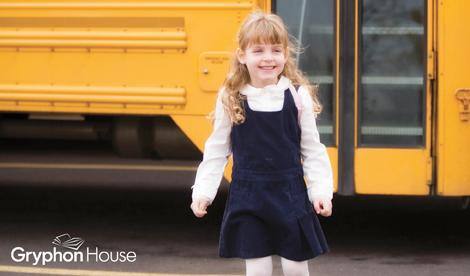The new school year is upon us. For many young children—and their parents—the first day of school brings first day jitters. Separation anxiety in children starting school is very common, and a normal stage of development. While it’s perfectly normal, coping with separation anxiety might seem difficult and overwhelming to many parents.
Separation anxiety in children can manifest itself in several ways in early childhood from crying to tantrums to clinginess—all healthy reactions to separation. However, these actions can be frustrating for parents, especially on the first day of school. Through all this, it is important to remember that consistency and patience are crucial in creating a secure connection with your child while supporting their emotional security.
Providing relatable scenarios, Parents Ask, Experts Answer brings parents expert advice on how to help their young children through issues ranging from sleep to separation anxiety. See how you can help relieve your child’s anxiety and make his or her first day of school jitter-free:
Practice separation.
By gradually introducing your child to separation you can greatly improve the process of first day drop-off. For example, leaving your child with a caregiver for short amounts of time, at first, allows them to get used to, and feel more comfortable, being away from you.
Be consistent.
Consistency isn’t only for when deal with your child’s separation anxiety. It’s important that you establish a routine, and consistent presences in your child’s life, such as using the same primary caregiver or the same teacher so they can feel more comfortable and eventually grow out of their separation anxiety.
Be patient, but set limits.
Having patience with your child as they experience separation anxiety is very important, and understanding is key as you listen to your child’s concerns. But, don’t be afraid to set limits which can help them adjust to separation.
Be supportive.
Letting your child know that you support them and are always there for them will help them adjust to separation. Be sure to let them know how proud of them you are as they start going to school on their own and getting used to being away from you for longer periods of time.
Author(s)Tina Nocera
Ashleigh Craven
Ashleigh Craven has a decade and a half of diverse category experience from agency communications to athletic apparel to automotive to education, developing and executing communication strategies in both traditional and social media. She has supported national product launches and corporate events for the likes of Soffe, Buick, Chevrolet, Wake Forest University , Kaplan, and others. She has an BA from the University of Michigan in English and Communication Studies and an MA from Wake Forest University, where she focused her studies on argumentation and presidential rhetoric and speechwriting. She served as director of marketing for Gryphon House from 2017- 2020.

